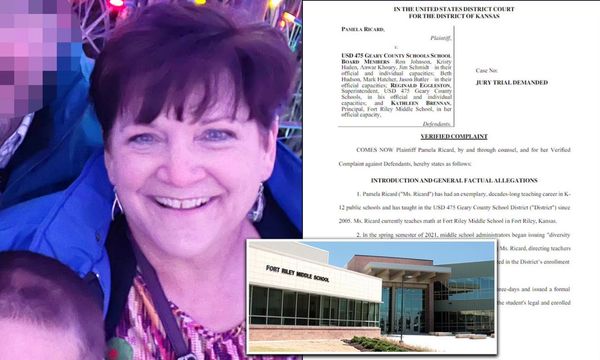The world is constantly changing, and not everyone sees these changes as progress. Pamela Richard, a Kansas teacher, found herself in a difficult situation when she stood up for her beliefs and refused to use preferred pronouns for one of her students. Despite the risk of being suspended, Richard remained steadfast in her conviction.

At Geary County Schools in Kansas, Richard was suspended for three days for simply addressing a biologically female student by her legal and enrolled last name. This occurred after a school counselor informed Richard that the student preferred to use a different first name and be referred to as a different gender.
In an effort to find a compromise, Richard decided to refer to the student as “Miss [legal/enrolled last name].” Unfortunately, this compromise was not satisfactory, and Richard was ultimately suspended. The reason provided was that employees should use the pronouns requested by the individual.

This violation of her conscience led Richard to file a lawsuit. As a Christian, she holds sincere religious beliefs that align with the traditional Christian and biblical understanding of human identity and biological sex. The lawsuit highlighted her belief that God creates individuals as either male or female, and this binary concept of sex remains fixed from the moment of conception, regardless of an individual’s feelings or preferences.

In May, Richard’s case went to federal court, where she emerged victorious and received a $95,000 award. The court ruled that Richard was free to communicate with parents in a manner consistent with her religious beliefs, without violating her conscience. Furthermore, she was no longer required to use pronouns that did not align with a student’s biological sex. The court also rejected the policy that prohibited staff members from disclosing preferred names and pronouns to parents.
While Geary County Schools has not provided any comments since the lawsuit, Pamela Richard’s case serves as a powerful reminder of the importance of individual beliefs and the right to express them respectfully. It also highlights the ongoing debates surrounding gender identity and the complexities it presents in educational settings.






